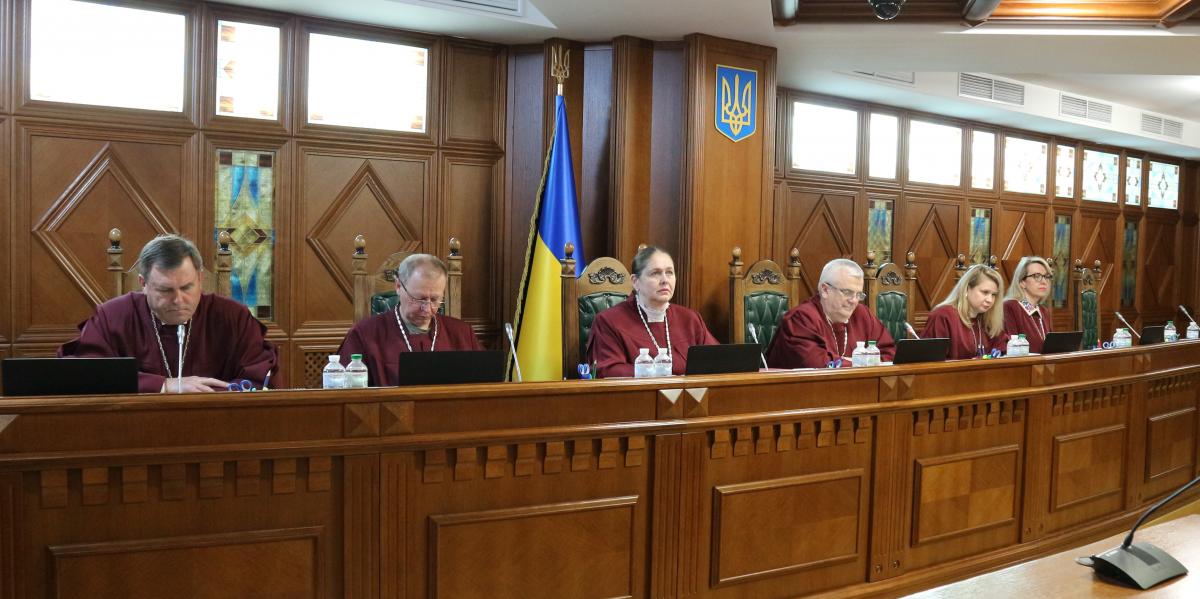July 16, 2025
On July 16, 2025, the First Senate deliberated the case upon the constitutional complaint of Larysa Stremenko in the public part of the plenary session in the form of written proceedings.
During the plenary session, the judge-rapporteur in the case Alla Oliinyk outlined the content of the constitutional complaint and the applicant's justification.
The judge-rapporteur informed that the applicant appealed to the Constitutional Court of Ukraine to verify the constitutionality of paragraph 3 of Section II “Final and Transitional Provisions” of the Law of Ukraine “On Amendments to Certain Legislative Acts of Ukraine” No. 1774–VIII dated December 6, 2016 as amended (hereinafter, “Law No. 1774”).
The contested provisions of Law No. 1774 establish that the minimum wage, after the entry into force of this Law, is not applied as a calculation value for determining official salaries and wages of employees and other payments, except for calculating the annual amount of financing for the statutory activities of political parties; until amendments are made to the laws of Ukraine regarding the non-application of the minimum wage as a calculation value, it is used in the amount of the subsistence minimum for able-bodied persons established as of January 1 of the calendar year, from January 1, 2017.
From the content of the constitutional complaint and the materials attached to it, it is seen that Larysa Stremenko is a pensioner who does not work, is registered with the Main Department of the Pension Fund of Ukraine in Zhytomyr region, has the status of a person who suffered as a result of the Chornobyl disaster, lives in a settlement that is classified as a zone of radioactive contamination as a result of the Chornobyl disaster.
The applicant claims that as a result of the application of paragraph 3 of Section II “Final and Transitional Provisions” of Law No. 1774, the guaranteed amount of the pension has actually been reduced by two and a half times compared to the previously established payments provided for in Article 39 of the Law of Ukraine “On the Status and Social Protection of Citizens Affected by the Chornobyl Disaster” No. 796-XII dated February 28, 1991 as amended (hereinafter, “Law No. 796”), as an unemployed pensioner living in the territory of radioactive contamination.
Therefore, she appealed to the courts of the judicial system with administrative claims. The court of first instance refused to satisfy the claims. The Court of Appeal delivered a new decision, in which it partially satisfied the claims. The Supreme Court dismissed the applicant’s cassation appeal, and the decision of the court of appeal remained unchanged. In its decision, the Supreme Court noted that with the entry into force Law No. 1774 the minimum wage is not used as a calculation value, in particular, for calculating the pension increase for non-working pensioners living in the territory of radioactive contamination, the right to which such persons arose on the basis of Article 39 of Law No. 796 (in the wording in force until 01.01.2015).
According to the applicant, the contested provisions of Law No. 1774 are such that they do not comply with a number of norms of the Constitution of Ukraine, lead to a narrowing of the content and scope of her constitutional rights, as a result of which, in particular, the right to property, as well as social guarantees for pension provision and social support of the standard of living of the population of Ukraine affected by the Chornobyl disaster, were violated.
The First Senate examined the case files and proceeded to the in-camera part of the plenary session.
The video recording of the plenary session is available on the official website of the Court in the section “Archive of video broadcasts of sessions”.


